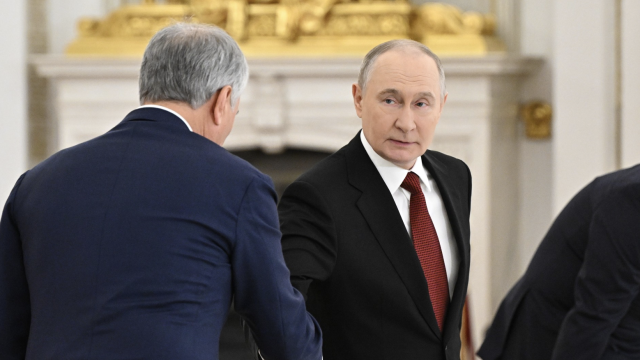The Supreme Arbitration Court has ruled that minority shareholders have the right to request any document, including agreements with contractors, from a company they have shares in — but not from its subsidiaries.
Vedomosti has obtained a copy of the final draft of the Supreme Arbitration Court's clarifications on shareholders' rights to information.
The court approved the document in full at a December presidium. Soon a memorandum will be signed, Chairman Anton Ivanov told Vedomosti. Supreme Arbitration Court memorandums are legally binding for all courts, said Dmitry Stepanov, a partner at the Yegorov, Puginsky, Afanasyev & Partners law firm.
A minority shareholder does not need to explain why he is requesting information, the memorandum states, and he can demand documents even from a time before he was a shareholder. At the shareholder's request, the company is required to provide documents by mail, charging a "reasonable" copying fee.
But there are a number of situations where the company can deny the request, such as a repeat inquiry requesting old documentation that does not offer value for analysis — because the statute of limitations has expired, for example, or when the minority shareholder is acting in the interest of a competitor.
The shareholder can request any document from the company, including contracts and documents containing commercial or other types of secrets. The company can have the recipient sign a nondisclosure agreement or delete the secret information in documents.
In this respect, the court's clarifications alter judicial practice, said Roman Bevzenko, head of the court's private law department. For instance, minority shareholders in Ingosstrakh requested copies of labor contracts, but the company refused to provide the documents, and the courts ruled this legal, Bevzenko said.
Subsidiaries' documents cannot be requested by someone who is a shareholder only in the parent company, the memorandum says.
Oleg Zaitsev, chief counselor at the Supreme Arbitration Court, noted while discussing the memorandum at the presidium that often a company's assets are often placed in subsidiaries. So shareholders need information about them as well.
If lawmakers choose to, they can require subsidiaries to provide information to the parent company's shareholders, Ivanov explained. But subsidiaries are considered independent legal entities.
Well-known Rosneft minority shareholder Alexei Navalny took a positive view of the memorandum. For basic documents, such as protocols by a board of directors, the court fully supports minority shareholders, he said. Right now companies refuse to provide even that type of document or demand that it be picked up in person — in Surgut, for instance.
Rosneft refused to provide Navalny with protocols, citing commercial secrets, among other reasons. The company lost that dispute in its first hearing. The case is now being appealed.
A Rosneft spokesman declined to comment on the memorandum, which he had not seen.
United Company RusAl, which owns 25.13 percent of Norilsk Nickel, has not been able to obtain protocols from Norilsk's board of directors. RusAl is pleased with the court's conclusions, a RusAl spokesman said. A Norilsk spokesperson declined to comment.
A Message from The Moscow Times:
Dear readers,
We are facing unprecedented challenges. Russia's Prosecutor General's Office has designated The Moscow Times as an "undesirable" organization, criminalizing our work and putting our staff at risk of prosecution. This follows our earlier unjust labeling as a "foreign agent."
These actions are direct attempts to silence independent journalism in Russia. The authorities claim our work "discredits the decisions of the Russian leadership." We see things differently: we strive to provide accurate, unbiased reporting on Russia.
We, the journalists of The Moscow Times, refuse to be silenced. But to continue our work, we need your help.
Your support, no matter how small, makes a world of difference. If you can, please support us monthly starting from just $2. It's quick to set up, and every contribution makes a significant impact.
By supporting The Moscow Times, you're defending open, independent journalism in the face of repression. Thank you for standing with us.
Remind me later.





